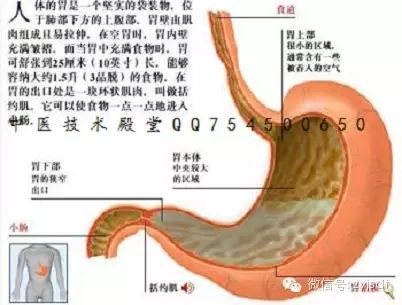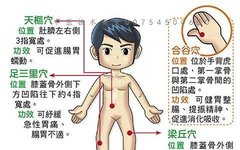 Spleen and stomach Yang deficiency is a common condition in our daily lives. Unlike a typical cold that can be cured with medication, it requires careful management to address the root cause. Today, we will learn how to manage this condition!
Spleen and stomach Yang deficiency is a common condition in our daily lives. Unlike a typical cold that can be cured with medication, it requires careful management to address the root cause. Today, we will learn how to manage this condition!

1. Introduction to Spleen and Stomach Yang Deficiency
The main causes of Spleen and Stomach Yang deficiency are poor dietary habits, such as irregular eating and frequent consumption of cold or chilled foods. Additionally, a fast-paced lifestyle and high mental stress can easily lead to gastric issues. Common symptoms include abdominal distension, epigastric pain, lack of thirst, cold extremities, loose stools, or edema in the limbs, fear of cold, clear and frequent urination, excessive and thin vaginal discharge in women, and a white and moist tongue coating. Although there are no severe symptoms, it still affects the patient’s daily life and work, so it is essential to develop good dietary habits. Patients with Spleen and Stomach Yang deficiency can consume dishes like pepper and pig stomach soup and ginger water. Pepper and ginger are warming spices that can help regulate the symptoms of Spleen and Stomach Yang deficiency.
2. Symptoms of Spleen and Stomach Yang Deficiency
Spleen and Stomach Yang deficiency is caused by dietary imbalance, excessive consumption of raw and cold foods, overexertion, or prolonged illness and worry that damages the Spleen. Symptoms manifest as pain when exposed to cold weather or consuming raw and cold foods, accompanied by a sensation of cold in the stomach, which can be alleviated by applying heat. There may be persistent dull stomach pain, which worsens with cold and improves with warmth or massage. Pain may also occur on an empty stomach, which can be relieved by eating, but worsens with fatigue, cold food, or exposure to cold, and may be accompanied by vomiting, loss of appetite, fatigue, and a weak pulse.
The manifestation of Spleen Yang deficiency and internal cold is often a progression from Spleen Qi deficiency or excessive consumption of raw and cold foods, or Kidney Yang deficiency. Clinical manifestations include abdominal distension with poor appetite, relief of fullness with heat application, clear water regurgitation, thin and loose stools, cold extremities, or weakness in the limbs, or generalized edema, difficulty urinating, or excessive and thin vaginal discharge, with a sensation of heaviness in the lower abdomen and soreness in the lower back. The tongue is pale and swollen, with a white and slippery coating, and the pulse is deep, slow, and weak. The key diagnostic points for Spleen and Stomach Yang deficiency are the loss of Spleen function and the manifestation of cold symptoms. Abdominal distension and reduced appetite indicate insufficient Spleen Yang and impaired transformation; abdominal pain that prefers warmth and pressure indicates Yang deficiency with excess Yin, leading to cold stagnation; the presence of internal cold and dampness results in water retention, leading to clear water regurgitation and loose stools, with severe cases showing undigested food in stools and difficulty urinating. Women may experience excessive and thin vaginal discharge, with a sensation of heaviness in the lower abdomen. Treatment should focus on warming the middle and strengthening the Spleen, using formulas like Li Zhong Tang (Regulate the Middle Decoction).
3. Populations Prone to Spleen and Stomach Yang Deficiency
Spleen and Stomach Yang deficiency is caused by dietary imbalance, excessive consumption of raw and cold foods, overexertion, or prolonged illness and worry that damages the Spleen. Therefore, it is generally more common among young working professionals and those with unhealthy eating habits and mental fatigue.
How to Manage Spleen and Stomach Yang Deficiency

The main causes of Spleen and Stomach Yang deficiency are poor dietary habits, such as irregular eating and frequent consumption of cold or chilled foods. Additionally, a fast-paced lifestyle and high mental stress can easily lead to gastric issues.
1. Medications for Spleen and Stomach Yang Deficiency
For Spleen and Stomach Yang deficiency, it is necessary to warm the middle, strengthen the Spleen, harmonize the stomach, and alleviate pain to restore Spleen and Stomach health. Reference formulas include Huang Qi Jian Zhong Tang (Astragalus Decoction to Construct the Center). In this formula, Huang Qi (Astragalus) tonifies Qi and strengthens the center, while Xiao Jian Zhong Tang (Minor Construct the Center Decoction) warms the Spleen and disperses cold, harmonizing the center and alleviating pain. For those with severe clear water regurgitation, add Gan Jiang (Dried Ginger), Wu Zhu Yu (Evodia), Ban Xia (Pinellia), and Fu Ling (Poria) to warm the stomach and transform fluids; if cold is predominant, use Fu Zi Li Zhong Tang (Aconite Decoction to Regulate the Middle) or Da Jian Zhong Tang (Major Construct the Center Decoction) to warm the middle and disperse cold; if Spleen deficiency with excessive dampness is present, combine with Er Chen Tang (Two-Cured Decoction); if there are symptoms of Kidney Yang deficiency such as soreness in the lower back and knees, dizziness, cold extremities, add Fu Zi (Aconite), Rou Gui (Cinnamon), Ba Jiao Tian (Morinda), Xian Mao (Curculigo), or combine with Shen Qi Wan (Kidney Qi Pill) or You Gui Wan (Restore the Right Pill) to assist Kidney Yang in warming the Spleen and harmonizing the stomach. Although they all represent Spleen and Stomach Yang deficiency, the manifestations and severity differ, and the appropriate formulas also vary, so it is essential to follow the physician’s advice for optimal results.
2. Dietary Therapy for Spleen and Stomach Yang Deficiency
Individuals with Spleen and Stomach Yang deficiency often suffer from improper diet, excessive stress, and fatigue. In addition to taking herbal formulas, it is crucial to improve lifestyle habits and adopt appropriate dietary therapy to promote better recovery. Foods that are warm in nature and have sweet and spicy flavors, which can strengthen the Spleen, tonify Qi, warm the stomach, and dispel cold, are recommended, such as indica rice, lamb, chicken, beef tripe, pig stomach, chain fish, grass carp, lychee, chili, leeks, fennel, cinnamon, dried ginger, fresh ginger, Sichuan pepper, black pepper, cumin, white cardamom, and brown sugar. Patients with Spleen and Stomach Yang deficiency can refer to the following dietary therapies:
1. Pepper Pig Stomach Soup
Clean the pig stomach with cornstarch and salt, then rinse thoroughly. Place pepper inside the pig stomach, sew it up, and add honey dates into the pot with an appropriate amount of water. Boil over high heat, then simmer for 3 hours. Season and consume the soup along with the pig stomach and honey dates. This dish has the effects of warming the middle, strengthening the Spleen, dispersing cold, and alleviating pain.
2. Ginger Porridge
Use 10 grams of fresh ginger, 100 grams of glutinous rice, and 10 grams of white sugar. Wash the ginger, slice it thinly, and place it in a pot with the washed glutinous rice. Add an appropriate amount of water, bring to a boil over high heat, then simmer until the porridge thickens. Add white sugar to taste. Consume in the morning and evening. This dish has the effects of warming the middle, dispersing cold, and warming the stomach to alleviate vomiting.
3. Red Date Indica Rice Porridge
Use 7 large red dates and 50 grams of indica rice, simmer together in water until fully cooked, then add 10 grams of brown sugar and serve hot.
Other dishes such as fennel dog meat soup, fennel dumplings, dried ginger honey glutinous rice drink, and ginger milk soup can also help warm the middle, strengthen the Spleen, and dispel cold to benefit the stomach.
Additionally, individuals with cold-type stomach pain should avoid foods such as duck eggs, clams, mung beans, persimmons, raw tomatoes, bamboo shoots, loofah, lettuce, kelp, raw loofah, raw radishes, mint, water spinach, and various cold drinks and chilled foods, as these cold-natured foods can exacerbate the pain associated with Spleen and Stomach Yang deficiency. Especially in summer, it is important to control one’s diet and avoid excessive cold foods, adjusting based on one’s physical condition.
3. Exercise
Appropriate exercise can enhance energy, promote blood circulation, and strengthen the functions of the Spleen and Stomach. Generally, low-intensity exercises such as jogging are recommended.

